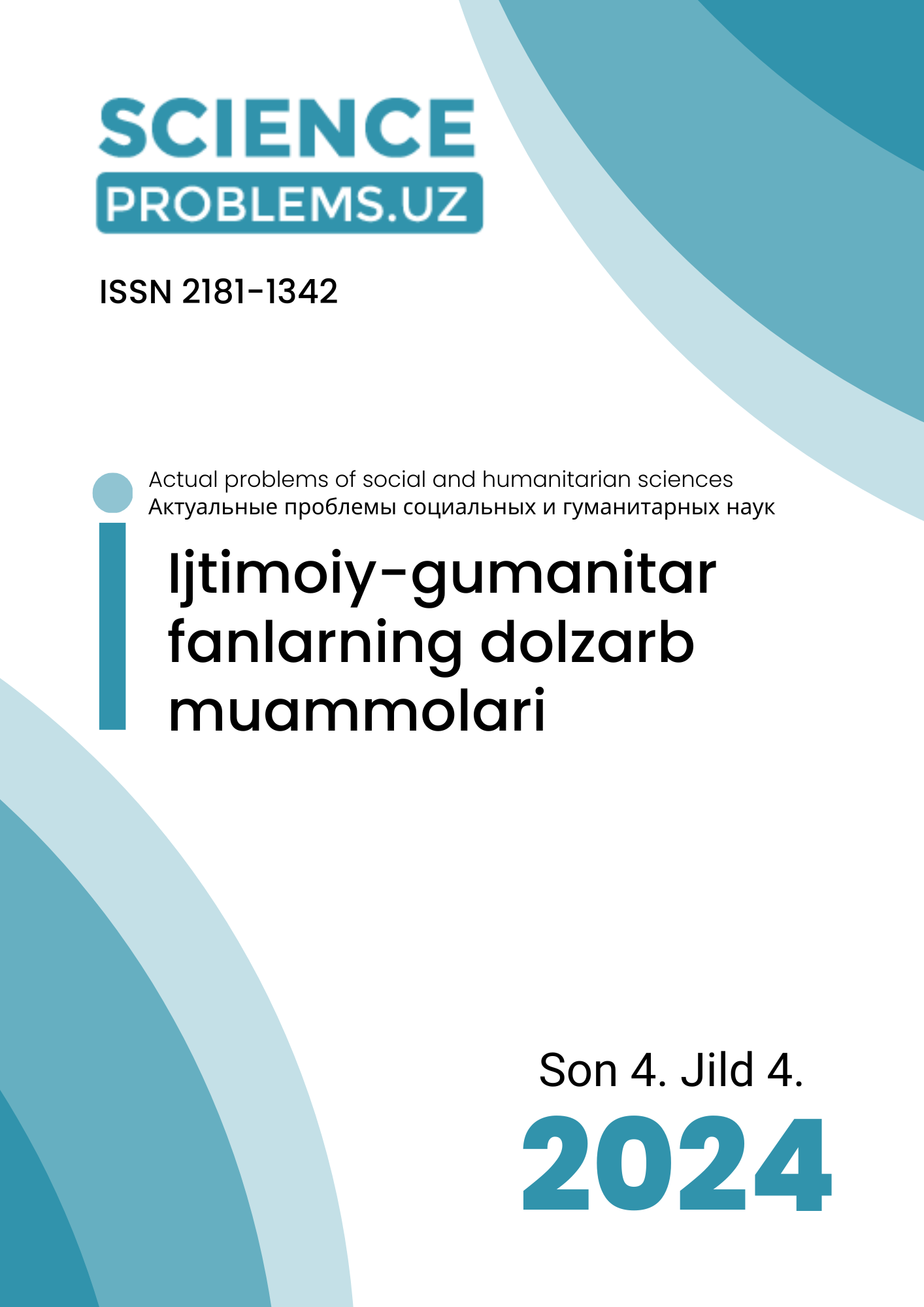THE SOMATIC CULTURAL CODES IN THE STUDY OF ENGLISH, RUSSIAN AND UZBEK PHRASEOLOGISMS
DOI:
https://doi.org/10.47390/SPR1342V4I4Y2024N33Keywords:
somatic expressions, phraseological units, somatic phraseologism, cultural code, expressiveness, conceptual, emotional, potential, coloring, connotative meaning, linguistic and cultural, cultural studies.Abstract
This article is devoted to the study of somatic phraseological units, which allows us to identify their main factors in the Uzbek, Russian and English languages. Linguists and researchers have studied the cultural codes in phraseology and highlighted their various classifications. The issue of categorizing phraseology into cultural codes plays an important role in revealing the national landscape of the world. FBs belonging to one of the cultural codes can also be related to other cultural codes, thus revealing the integrity and hierarchy, i.e., gradation, inherent in the semiotic system of language. This research paper focuses on the issues related to somatic phraseology in Uzbek, English and other cultural codes in Russian, identifying their equivalents and providing appropriate translation. The purpose of this paper is to study somatic units and identify their similarities and differences in Uzbek, Russian and English. A distinctive feature of somatic phraseology is the presence of many similarities in the figurative orientation of collocations in the languages. This feature sharply distinguishes SPhU from other thematic groups. The use of names of body parts in PhU is explained by the fact that when naming a new object, a person, first of all, relies on the association with what he knows and is familiar with. First of all, a person compares himself/herself with himself/herself, and his/her body parts with the things that surround him/her. Studying and comparing PhUs of two or more languages helps to reveal specific features of culture and mentality of different peoples. Sometimes it is possible to identify differences in the thinking of speakers of a particular language. Our study also revealed historical parallels characteristic of the languages being compared.
References
Batsuren R. Kulturniye kodi vo frazeologicheskikh yedinitsakh s komponentom-somatizmom “nos” v angliyskom, russkom i mongolskom yazikakh [Cultural codes with the component “nose” in phraseological units in English, Russain and Mongolian languages] // глийском, русском и монгольском языках//Concise English-Russian-Mongolian dictionary of idioms.– UB: Admon, 2004.
Belaya Ye.N. Theoreticheskiye osnovi issledovaniya yazikovikh i rechevikh reprezentatsiy bazovikh emotsiy cheloveka (na material russkogo I frantsuzskogo yazikov) [Theoretical bases of the study of the language and speech representations of the main emotions of the person (on the Russian and French language materials)] http://starling.rinet.ru/~minlos/thesis/Belaya2006.pdf)
Berezovich E. L. Yazyk i traditsionnaya kul'tura: Etnolingvisticheskie issledovaniya [Language and traditional culture: Ethnolinguistic research]. – Moscow: Indrik, 2007, 600 p.
Gudkov D.B., Kovshova M.L. Telesniy kod russkoy kulturi: materiali k slovaryu.[Body code of Russian culture] – M.: Gnozis, 2007. – 288 s.
Khomyakov A. Kodi kulturi v jargonnoy frazeologii. [Cultural codes in jargon phraseology]//Gumanitarniye nauki, Filologiya. № 3 (31), 2014.
Kovshova M.L. Lingvokulturologicheskiy metod vo frazeologii: kodi kulturi.[Linguocultural method in phraseology] 2 izd. –M.: Knijniy dom “Librokom”, 2013. – 456 p.
Krasnikh V.V.Etnopsikholingvistika i lingvokulturologiya: Lektsionniy kurs.[Ethnopsycholinguistics and linguoculturology: lecture course] – M.: Gnozis, 2002.– 284p.
Lamova V.V. Ob’yektniy kulturniy kod vo frazeologizmakh kharakterizuyushikh yavleniya i situatsii [Cultural code of the object of the events and situation in phraseologisms] // Izvestiya Rossiyskogo gosudarstvennogo pedagogicheskogo universiteta. Obshestvenniye I gumnitarniye nauki.– 2008.
Maslova V.A. Lingvokulturologiya. –M.: Izdatelskiy tsentr “Akademia”, 2001.
Teliya V.N., Postovalova V.I., Tarasov Ye.F. Phraseologiya v kontekste kulturi // Pod. red. V.N.Teliya; RAN. In-t yazikoznaniya.– M.: Yaziki russkoy kulturi, 1999. – 334p.
Weintraub R.M.O somaticheskikh frazeologizmakh v russkom yazike [On somatic phraseologisms in Russian language]//Lexical Units of Russian Language and their study – Tashkent, 1980. – P.51-55.








